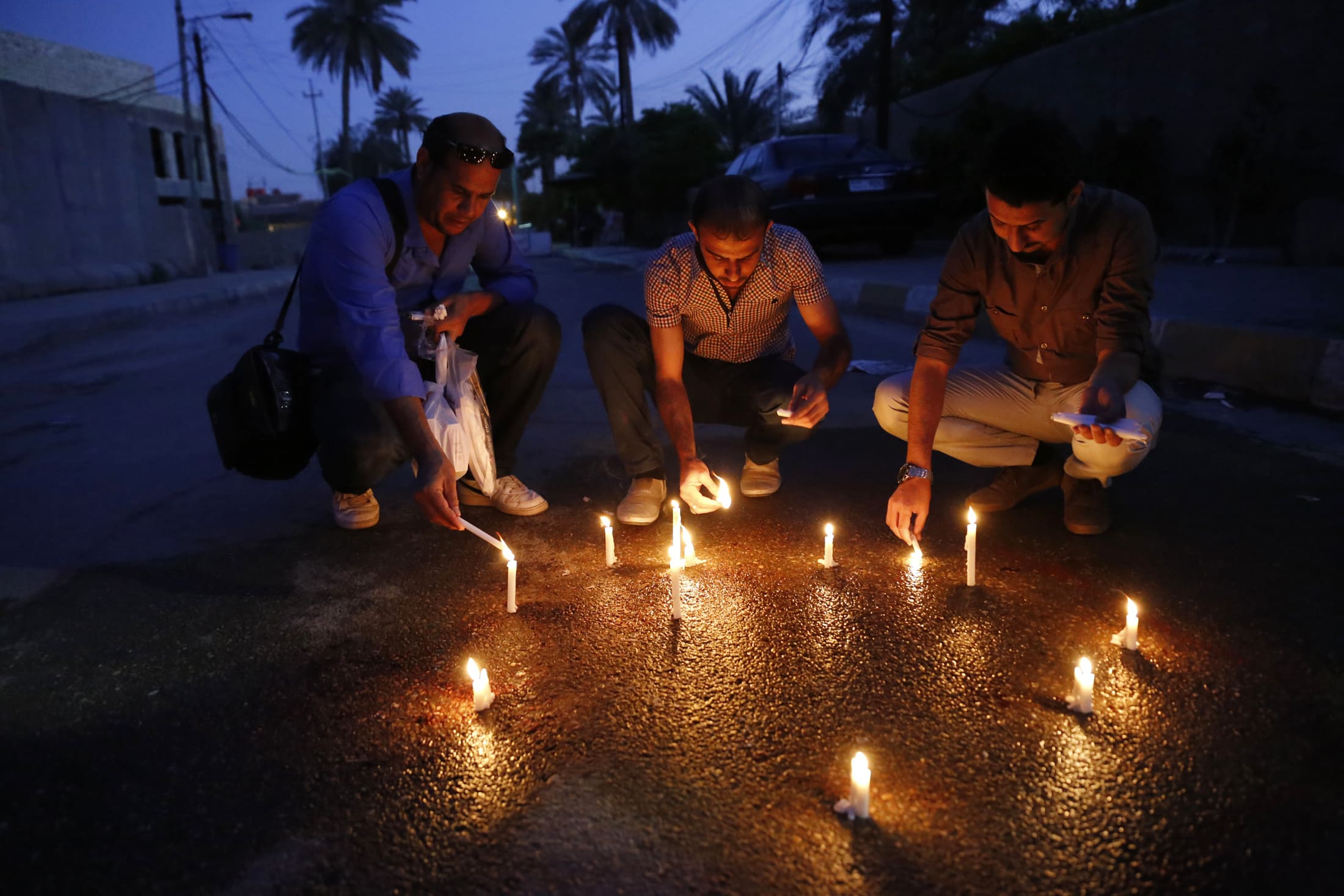Syria has joined the list of countries where journalists' murders are most likely to go unpunished, while Iraq, Somalia, and the Philippines once again were the worst offenders, CPJ has found in its newly updated Impunity Index.
By Elisabeth Witchel/CPJ Impunity Campaign Consultant
Syria has joined the list of countries where journalists’ murders are most likely to go unpunished, while Iraq, Somalia, and the Philippines once again were the worst offenders, the Committee to Protect Journalists has found in its newly updated Impunity Index. Convictions in four countries represented a glimmer of good news.
Syria’s entrance to the Index at number five highlights the rising number of targeted killings there, a recent threat to journalists operating in the country. With unprecedented numbers of abductions and high rates of fatalities in combat and crossfire, Syria was already the world’s most dangerous country for journalists.
Fresh violence and a failure to prosecute old cases kept Iraq, Somalia, and the Philippines in the three worst slots on the Index. Iraq, with 100 percent impunity in 100 cases, is at number one, a spot it has held since the survey’s inception in 2008. Iraq’s journalists, targeted in record-breaking numbers since the 2003 U.S.-led invasion, saw a respite in 2012, the first year no journalists were killed in relation to their work. However, a resurgence of militant groups across the country propelled a spike to 10 journalist killings last year – nine of them murders.
Consistent with the four previous years, Somalia ranks second worst worldwide. Four new murders in 2013 added to the already alarming numbers of journalists killed in retaliation for their work. Elusive armed insurgent groups have terrorized the media beyond the reach of Somalia’s fragile law and order institutions, but authorities have also failed to adequately investigate attacks by other sources, according to CPJ research.
For this year’s edition of the Impunity Index, which calculates the number of unsolved journalist murders as a percentage of a country’s population, CPJ examined journalist murders in every nation in the world for the years 2004 through 2013. Cases are considered unsolved when no convictions have been obtained. Only those nations with five or more unsolved cases are included on the index. This year, 13 countries met the Index criteria, compared with 12 last year.
In a positive development, convictions took place in four countries on the Index – yet in only one case were those who ordered the crime apprehended or tried, reflecting a global pattern. The Philippines sentenced the broadcast journalist Gerardo Ortega’s shooter to life in prison. With the murders of 51 journalists still awaiting justice, this development has not changed the country’s Index ranking, which has remained firm at number three since 2010. Pakistan’s near-perfect record of impunity was shattered when courts convicted six suspects (though two of them are at large) for the 2011 murder of Wali Khan Babar. Russian courts sentenced a Russian businessman to seven years for inciting the 2000 murder of Igor Domnikov, and Brazil’s courts convicted perpetrators of three murders – including, in one case, the mastermind. In the rest of these crimes, the masterminds remain at large.
Lawmakers in Mexico, seventh on the list, approved legislation in April 2013 to support enactment of a constitutional amendment giving federal authorities jurisdiction to prosecute crimes against journalists. Though the law is viewed as an important step toward improving press freedom, no significant progress has been made yet in Mexico’s 16 unsolved cases.
Colombia’s ranking improved significantly, due to a drop in journalist killings in recent years, though no one has been convicted of killing a journalist since 2009. While Colombia has taken measures to provide security to journalists under threat, journalists have also been compelled in many cases to self-censor, or flee their homes.
While no apparent progress was made in any cases in Sri Lanka and Afghanistan, CPJ did not record any new murders in those countries from 2009 to 2013. Nigeria stayed on the Index for the second year in a row with five unsolved cases. Two new murders took place in India in 2013, bringing to seven the total number of unprosecuted murders.
Growing international concern over the absence of justice in media attacks prompted strong attention from the United Nations last year. UNESCO kicked off the implementation of the U.N. Plan of Action for the Safety of Journalists and the Issue of Impunity, a framework adopted in 2012. In November, the U.N. General Assembly adopted a resolution on safety of journalists. The resolution calls for states to act to pursue justice and recognizes November 2 as the International Day to End Impunity.
Among the other findings in CPJ’s Impunity Index:
- 96 percent of victims are local reporters. The majority covered politics, corruption, and war in their home countries.
- A climate of impunity engenders violence. In eight countries that appear repeatedly on the Index year after year, new murders took place in 2013.
- Threats often precede killings. In at least four out of every 10 journalist murders, the victims reported receiving threats before they were killed.
- Killers of journalists aim to send a chilling message to the entire news media. Almost a third of murdered journalists were either taken captive or tortured before their death.
- 10 of the 13 countries on the Impunity Index have been listed each year since CPJ began the annual analysis in 2008, underscoring the challenges in reversing entrenched impunity.
- Political groups, including armed factions, are the suspected perpetrators in more than 40 percent of murder cases. Government and military officials are considered the leading suspects in 26 percent of the cases. In fewer than five percent of cases are the masterminds ever apprehended and prosecuted.
Additional Information
CPJ’s 2014 Global Impunity Index.
For a detailed explanation of CPJ’s methodology, click here.
CPJ’s Global Campaign Against Impunity.




